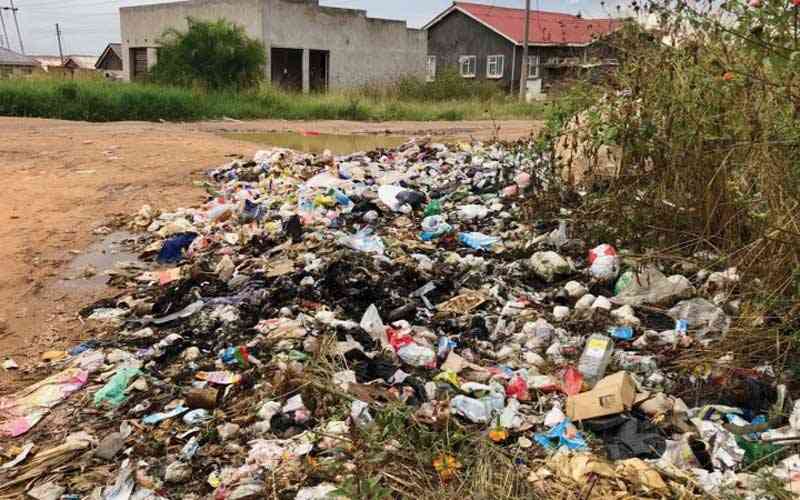
A few days ago, news was all over that the suburbs of Kuwadzana were hit by cholera and eight people had succumbed to the diarrheal disease.
The disease should not kill many people as case fatality rate is usually less than 2%.
The continuous spread of the disease is a serious test on primary health care which should orient its structures and functions towards the values of equity and social solidarity.
Everyone should enjoy the highest attainable standard of health without distinction of race, religion, political beliefs, economic or social condition.
The principles required to sustain primary health care are its capacity to respond equitably and efficiently to the health needs of citizens, including the ability to monitor progress for continuous improvement and renewal, the responsibility and accountability of government, sustainability, participation and an orientation towards the highest standards of quality and safety and intersectoral approach.
Primary health care should thus dwell on health education and promotion, good nutrition, clean water supplies, good sanitisation, immunisations, affordable first line drugs, easy patient transfers to mention but just a few.
It is an embarrassment to die of cholera in this era and age. The disease is attributed to poor sanitation and contaminated water.
There are many office bearers in councils, municipalities who seem incompetent to deal with the perennial health matters for our cities and towns. Is it that meritocracy is not considered on selection and recruitment?
- Harare cancels Pomona waste deal
- Inside sport: The right way to do it
- FC Platinum 8 points clear as Chicken Inn falters again
- Devolution gains remain a mirage
Keep Reading
Harare city fathers concentrate their energy on clamping of vehicles, charging amounts ranging from $57 to $120 depending on whether towing of the vehicle was done or not.
Complaints have been raised about the vindictive nature of City Parking or Easy Park but no one has taken motorists seriously.
Patronage, nepotism and favouritism are killing our country as undeserving people are occupying offices.
It is surprising that many office-bearers in management positions do not have the pre-requisite qualifications which should surely include even a certificate, diploma or degree in management.
How can one run a whole health institution when they are ignorant of management expectations? Just taking a doctor from school and throwing him to become a medical boss at a hospital is tantamount to setting him for an arrest.
Mounds of garbage are becoming an ugly sight at many open spaces which include both high and low-density suburbs.
It is regarded as normal to have garbage next to your home. Harare has become an eyesore with hordes of rubbish piling up in all open spaces.
The consequences are catastrophic with water bodies receiving maximum contamination. Cholera has circulated in the city and it is not showing signs of remission.
About 200 people have already lost their lives since February 12 when the first cholera cases were identified in Chegutu.
We should remain very vigilant about Cholera if we are not have a repeat of 2008 when the country recorded about 98 585 cases and 4 287 deaths within a space of just nine months.
The 2019 cholera outbreak was milder with about 10 421 cases being recorded with about 69 people succumbing to the disease.
It was not long ago when President Emmerson Mnangagwa declared “a state of disaster”in four Harare Metropolitan local authorities namely Harare City Council, Ruwa, Epworth and Chitungwiza due to their failure to collect and dispose of waste.
Epworth has experienced waste disposal misery with residents now dumping waste in rivers and vacant spaces, much to the detriment of people’s health.
With the rain seasons fast approaching, there is great potential to contaminate water bodies further and diseases like cholera, dysentery, typhoid will be very difficult to contain once they start to sprout.
It is common knowledge that garbage has a high tendency to block water bodies and natural flows, thus becoming unwanted breeding sources for vectors such as mosquitoes that are very stubborn in malarial transmission.
Why are we failing to contain Cholera in our beautiful country? Is it not only mere incompetence?
Strengthening water infrastructure remains critical in reducing many of the communicable diseases.
Statutory 140 of 2023 has potential to improve the waste management system as the Environmental Management Agency (EMA) is now mandated to manage refuse collection and waste management within Harare Metropolitan Province.
Funds from the treasury will be used by EMA to coordinate the clearance of dumpsites across the province.
If treasury avails the funds, then garbage should be a thing of the past. Unethical practices like corruption and embezzlement of funds can hinder any progress in any project and failure to address corruption will take us backwards as a country. The judiciary should not smile at all those who were implicated in corruption.
Inter-sectoral approach remains fundamental in the mitigation and containment of cholera with councils expected to take leading roles.
People should also be reminded to practice good hygiene which include hand-washing with soapy water, sanitisation.
It is very wise to shun suspicious water as it may be the source of Vibrio Cholerae, a toxin-producing bacterium.
- Dr Johannes Marisa is a medical practitioner, an educationist and a public health expert who can be reached on [email protected]







